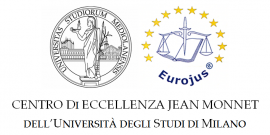Comercio internacional y responsabilidad ambiental y climática. A propósito del Reglamento (UE) 2023/1115 contra la desforestación.
Abstract
In risposta a questioni complesse come il cambiamento climatico e l’accelerazione della perdita degli ambienti naturali del pianeta, l’Unione Europea sta rispondendo con diverse strategie e iniziative a livello locale e internazionale. Valori universali a rischio, quali l’ambiente, la biodiversità e l’equilibrio climatico richiedono doveri e responsabilità a tutti i livelli.
In questo contesto, il presente articolo analizza il Regolamento (UE) 2023/1115, brevemente noto come “deforestazione zero”, che presenta un disegno normativo innovativo e complesso che solleva, però, dubbi sulla sua reale efficacia. In effetti, si tratta di una risposta unilaterale data alla mancanza di un accordo multilaterale sulla protezione delle foreste. È una risposta con effetti extraterritoriali, che si propone di incoraggiare la cooperazione e gli accordi con i Paesi terzi, con l’UE che si presenta come portabandiera nella lotta al cambiamento climatico.
L’articolo analizza i pro e i contro del Regolamento sulla base di tre possibili risposte da parte dei Paesi terzi e dai loro settori produttivi: quella che vede nel Regolamento una possibile barriera non tariffaria; quella che lo vede come un’opportunità per alcune regioni di accedere all’appetibile mercato europeo; quella che condivide l’obiettivo della protezione ambientale e lo vede come un’opportunità per rafforzare le normative nazionali e proteggere altri ecosistemi.
Per leggere l’intero articolo clicca qui.
Abstract (eng)
In response to complex issues such as climate change and the accelerating loss of the planet’s natural environments, the European Union is responding with various strategies and initiatives at local and international level. The universal values of risk, environment, biodiversity and climate balance require duties and responsibilities at all levels.
In this context, this article analyses Regulation (EU) 2023/1115, briefly known as ‘zero deforestation’, which presents an innovative and complex regulatory design that at the same time raises doubts about its real effectiveness. In effect, it is a unilateral response to the lack of a multilateral agreement on the protection of forests, a response with extraterritorial effects, which is proposed to encourage cooperation and agreements with third countries, with the EU presenting itself as the standard-bearer in the fight against climate change.
The article analyses the pros and cons of the regulation on the basis of three possible responses from third countries and their productive sectors: the one that sees the regulation as a possible non-tariff barrier; the one that sees it as an opportunity for some regions to access the attractive European market; the one that shares the objective of environmental protection and sees it as an opportunity to strengthen national regulations and protect other ecosystems.
To read the entire article click here.


